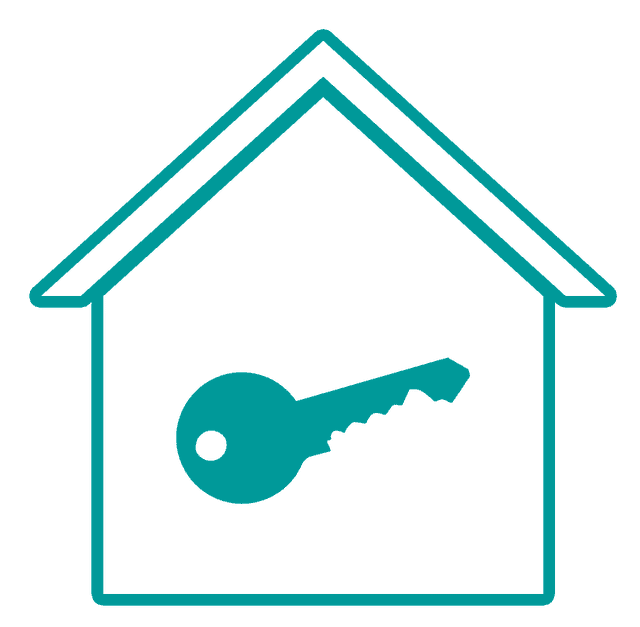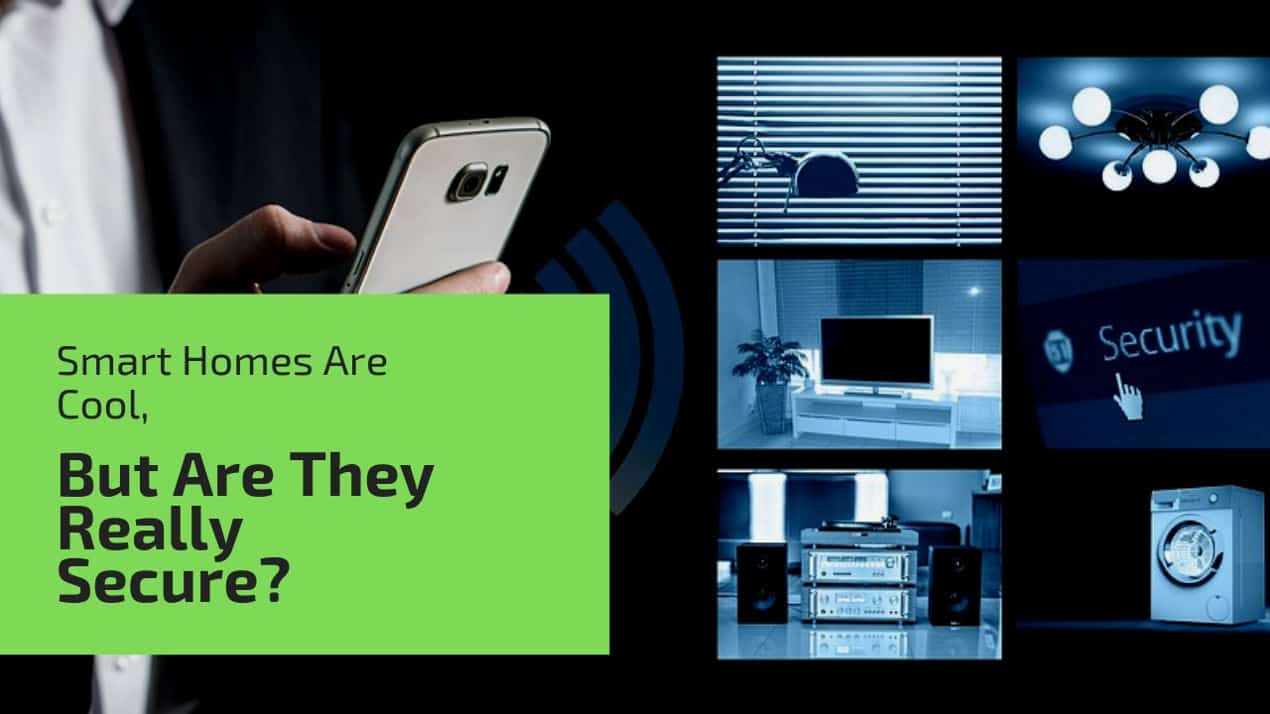Smart Homes Are Cool, But Are They Really Secure? You’ve probably been lately thinking and researching about smart homes when the issue of security hits you.
Are smart home’s really secure? Can my smart home be hacked? Whether you already made your home smart or still tinkering with the idea, your concerns and worries about smart home security are valid.
Are Smart homes Really Secure? For the most part yes, if you take a few precautions like, perform regular security updates, use multifactor authentication, install malware, use known standard devices from reputable manufacturers, Secure your Wi-Fi signal buy a separate connection for each or split an existing connection using VLAN and avoid using public Wi-Fi.
For starters, a smart home is essentially a home that contains one or more connected smart devices, which can be remotely accessed, monitored and controlled over the internet from within or away from home. But are smart home locks safe?
Smart homes can range in sophistication from simple homes with a single, smart feature such as security cameras to advanced homes with a series of smart systems linked together by a dedicated smart hub and a single app.
Smart Homes Are Cool, But Are They Really Secure?
Smart home devices and systems typically connect to the internet via cable Ethernet or Wi-Fi and often come with an app that allows you to access and manipulate them. What is Smart Home Automation and how does it work?
The functions included in any smart home system can be as many or as few as you want –from remotely unlocking/locking the doors and turning the lights on/off, to adjusting your home temperature and turning on lawn mower sprinklers –the possibilities are limitless, but…
What Could Possibly Go Wrong?
Considering the level of seemingly infinite connectivity within the system and to the outside world, smart homes have various vulnerabilities that can be exploited by the bad guys that we’re sometimes trying to keep out.
It would appear that the more smart devices your home have, the higher the chances of being hacked or compromised. As a safety-conscious homeowner, chances are you already added IP-cameras to your smart home to safeguard your home against burglars.
What you might not know is that hackers with even the basic skills and a sufficient amount of motivation can hack your home security system and use it against you. They can actually spy on you and break into your property at their convenience when you’re not at home.
In addition, tech-savvy hackers could integrate your insecure IoT components into a botnet, and use it to attack other servers by flooding them with traffic. So your smart fridge somewhere in Canada or someone else’s IP-camera in the US could be among the globally dispersed devices which a hacker could use to attack a server in Russia or elsewhere.
Others could even incorporate specific smart home devices with enough processing power into crypto-mining botnets, and leave you paying heavily for the increased demand on resources –not to mention compromised performance.
If you’re using a smart baby monitor with video and audio to check on your little ones, chances are it’s not only you are keeping an eye on your kids –another random stranger could easily tune into your live-stream.

The above dramatic examples could happen to pretty much any other camera or audio-equipped system in your smart home, not just your baby monitors or security cameras –home assistants and smart mirrors are also in this group. Hackers could easily use private video or audio data to blackmail a homeowner.
No single system can guarantee you absolute security
Smart plugs, smart thermostats, smart faucets, and smart lights are not safe either –this particularly goes to homeowners looking to reduce their energy bills. Hackers can easily sniff data packets from these devices and establish your routine –they can tell when you’ve been away for long by how long your smart lighting system or plugs have been off.
Perhaps the worst-case scenario is having your smart door locks and smart garage door opener hacked. Hackers can take advantage of the system vulnerabilities in your smart door locks and access your home effortlessly when you’re away.
Other than the smart devices themselves, wireless standards used to build and connect home automation such as Wi-Fi, Z-Wave, ZigBee, and many others come with their own fair share of exploitable vulnerabilities.
Like many other systems, no single system can guarantee you absolute security. A number of systems and smart homes have already been hacked before as a result of this.
Considering the above examples, it’s quite clear that successful attacks and hacks to smart home systems can have dire consequences –from loss of privacy and system functionality to loss of property and the possibility of being hurt by intruders.
Unfortunately, for smart homes that have all devices connected to and controlled from a central dedicated hub, it only takes one weak spot to gain access to the entire system.
Ways to Keep Your Smart Home from Being Hacked
The purpose of this article is not to scare you away from making your home smart or worry you if your home is smart already, instead, to point out the reality of intelligent home vulnerabilities and possible ways of addressing them.
So if you're considering making your home a little smarter, all is not doom and gloom. Just like with any other tech system or device –your phone, PC, etc. – there are several measures and precautions you can take to make your smart home more secure and keep your family and property safe. Here are a few steps you can use to reduce the chances of your smart home being hacked or compromised;

1. Perform regular security updates
We’re all guilty of this –your PC or phone prompts you to complete specific software update, but you overlook it and click “Later.” This habit can actually make your smart devices vulnerable to hacking.
Many times these updates are security updates meant to patch a certain vulnerability that has been exposed by hacking attempts. Most devices, including your smartphone, don’t update software automatically and rely on you to complete these updates once notified.
So any time an update notification corresponding to your smart light bulbs or smart door locks pups up, don’t brush it aside, go ahead and complete the update. While not all updates are security updates, any software update from a reputable developer/manufacturer is pushed with good intentions.
2. Use multifactor authentication
The password and PIN have for the most part have become absolute when it comes to securing critical systems such as a smart home. So you need to add an additional authentication factor beyond that.
The extra level of authentication could be a security key or a one-time code received by a phone call or text to keep unknown parties out of smart devices and the associated apps. Many of the websites and apps offer the two-step authentication already, but some require that you activate this feature under ‘’settings’.
There’re other additional methods such as biometric authentication (thumbprint, retina scan, etc.) which are equally difficult to fake. With two-step authentication, even if a hacker is able to steal your password or PIN through other means, they still won’t be able to access your smart home system without the second step of authentication. In the same breath, always remember to change your default usernames, passwords, and PINs.
3. Install malware protection
This might sound obvious to PC and Mac users, but not many smart homeowners have malware protection software on their phones.
Malware protection apps come with built-in application firewalls that allow you to choose which apps to run on your phone or computer. It will alert you if an app or script comes up that you’ve never run before, potential keeping your device safe from malicious software.
Antivirus software might not protect you from 100%, or even 80% of all the known viruses, however, you can agree that keeping away 80% of the potential harm is much better than none, right? Popular malware protection software includes Norton Antivirus, McAfee antivirus, Sophos Antivirus, and Avast.
4. Only use known devices
This sounds pretty standard and obvious, but you won’t believe how often it works for the bad guys. So for starters, don’t stick any stray USB stick or CD you find lying around into your computer. In a process known as “social engineering,” hackers rely on things like human curiosity to meet their malicious goals.
The hackers would often leave devices equipped with malicious scripts and software outside your home or office, and it almost always works. Once you stick it into your computer, it installs a malicious script that would then send sensitive information back to the originator.
5. Avoid using public Wi-Fi.
You probably already know that hackers can get their way into public Wi-Fi and steal sensitive information from unsuspecting users. So if you’re using your device at a public place, make sure the “automatically connect” setting is turned off both on your PC and phones.
Connecting any of your home smart devices to a public Wi-Fi also creates an inroad into your system for hacking exploitations. Additionally, make sure that your internet connections are segregated to reduce the chances of being hacked.
Preferably, you should not use the same connection on your PC and your smart home system. You can either buy a separate connection for each or split an existing connection using VLAN (virtual local area network). This way, if your home computer is compromised, hackers can’t use it to access your smart home system.
Bottom line
Smart home automation is a great way to make living in your home more secure, convenient and entertaining. Many homeowners have used it to save on their energy bills (and water bills), prevent break-ins, save time and create a more comfortable living space.
While the home automation ecosystem might have some security vulnerabilities, understanding how this affects you and implementing measures such as the ones recommended above should make you and your family less exposed to the bad guys.


